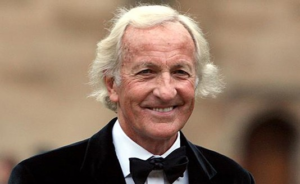Archishman Raju
In February 1958, when Ho Chi Minh visited India, Prime Minister Jawaharlal Nehru welcomed him as “a great revolutionary and an almost legendary hero”. September 2019 marked the 50th anniversary of the death of “one of the most remarkable men of our times”, and serves as an occasion to remember what created him and made him such a legendary figure.
Ho Chi Minh was born in 1890, at a time when European powers were engaged in a “scramble for Africa”, partitioning and colonising the continent, and had consolidated their hold over Asia. He was born in a small Vietnamese village, and was exposed at a young age to patriotic activities and peasant revolts against French rule. He also saw the extraordinary cruelty of the French, which he was to later document in great detail.
He seemed to have a continuous desire to acquire knowledge that would help liberate his people, and left Vietnam at the age of 21 by finding work on a steamer ship as a cook’s helper. His life story is so unique that it reads almost like magical realism. He wandered around the world, changed his name several times and was in a restless search for direction that could lead to freedom for his country. He visited ports in Africa and Asia, including countries like Algeria, Senegal, India and Morocco, and would disembark to examine local conditions. Seeing the commonality of colonial oppression in these countries had a deep impact on his views.
Eventually coming to live in France, Ho Chi Minh took up various odd jobs and joined the French Socialist Party. Here, he interacted with the French Left, a significant faction of which was talking about socialism domestically, and showed sympathy with him personally, but was half-hearted in its condemnation of French colonialism. Ho Chi Minh distributed leaflets exposing the nature of French colonialism, and also attacking the concrete manifestation of the so-called ideals of the French revolution with sharp irony. In one of these leaflets, he said,
“It is bitterly ironic to find that civilisation—symbolised in its various forms, viz. liberty, justice, etc., by the gentle image of woman, and run by a category of men well known to be champions of gallantry—inflicts on its living emblem the most ignoble treatment and afflicts her shamefully in her manners, her modesty, and even her life…. Colonialism is unbelievably widespread and cruel.”
Ho Chi Minh would develop this critique of European civilisation in a later article on Civilisation That Kills, subtitled ‘How the whites have been civilising the blacks. Some deeds not mentioned in history textbooks’. The article began:
“If lynching—inflicted upon Negroes by the American rabble—is an inhuman practice, I do not know what to call the collective murders committed in the name of civilisation by Europeans on African peoples.”
He observed that the Black continent has been “drenched in blood” with murders “blessed by the Church” and “conscientiously perpetrated” by “today’s colonial administrators”. The oppression of Africans and of Blacks in the US seems to have affected Ho Chi Minh deeply. He said:
“It is well known that the black race is the most oppressed and the most exploited of the human family. It is well known that the spread of capitalism and the discovery of the New World had as an immediate result the rebirth of slavery which was, for centuries, a scourge for the Negroes and a bitter disgrace for mankind.”
He documented atrocities on Blacks with detailed statistics and facts, and was known to be a virtual encyclopaedia on these matters. It is not insignificant that his development was shaped by the conditions in Africa, and its particular position in the world at the beginning of the 20th century.
Lenin and Gandhi
Ho Chi Minh has been variously compared to two other world leaders, Gandhi and Lenin. These comparisons reflect a deeper truth. Perhaps more so than any other figure in the 20th century, Ho Chi Minh came to be at the centre of two great world revolutionary movements: the Russian revolution and the anti-colonial struggle. Gandhi was less of a direct influence on him, though he was well known for his strong emphasis on morality and simplicity.
He was, of course, well aware of English colonisation and the Indian anti-colonial struggle, and he reportedly said once in a conversation comparing the Indian to the Vietnamese situation. “There you had Mahatma Gandhi, here I am the Mahatma Gandhi.” On another occasion, he said, “I and others may be revolutionaries, but we are disciples of Mahatma Gandhi, directly or indirectly, nothing more, nothing less”.
Lenin had much more of a direct influence on Ho Chi Minh. In 1920, the Second Congress of the Comintern had published Lenin’s views on the national question. There, Lenin articulated how and why communists should seek to support all national revolutionary movements in the East. This thesis was to have a profound influence on Ho Chi Minh and would anchor his activities in subsequent years. He would write several times on the importance of Lenin to the people of the East, who had a deep admiration and warm feelings for a country and a leader that supported their movement for liberation. He said:
“Lenin was the first man determinedly to denounce all prejudices against colonial peoples, which have been deeply implanted in the minds of many European and American workers.”
This pushed Ho Chi Minh towards Leninism, and he conceptualised the anti-colonial and anti-imperialist struggle as an important step towards a transition to socialism and communism. He would go to Moscow in 1923 and then work for the Comintern. In Moscow, he met and interacted with the Indian revolutionary M.N. Roy, who had debated with Lenin at the Second Congress on the national and colonial question. Both worked together in the Society of Oppressed Peoples of Asia in Moscow. This was an early instance of the commonality expressed in the struggles of Vietnam and India.
American imperialism and anti-colonial solidarity
Several other such instances of solidarity abound. In January 1947, before India’s independence, the All India Student Federation had declared a day to be Vietnam Day. There was a huge strike in Calcutta, which was met with police repression and firing. Two students died and one student, Ranamitra Sen, was shot in the leg.
This support for Vietnam in India was also reflected in the Indian leadership. Nehru was one of the first foreign dignitaries to visit Vietnam in 1954, after the victory of the Vietnamese over the French in Dien Bien Phu and the signing of the Geneva accords.
Ho Chi Minh had written a poem for Nehru capturing their common dilemma during their respective struggles:
You are in jail, I am in prison…
We communicate without words,
Shared ideas link you and me.
Subsequently, Ho Chi Minh participated in the Bandung conference in 1955 and visited India in 1958. He interacted with a wide range of people, with a delightful informality. On learning that Ranamitra Sen was in the audience at one of his gatherings, he got off the stage and went to greet and embrace him.
During the time of the Vietnam War, large demonstrations were held in India. In Calcutta in particular, the renaming of a street as Ho Chi Minh Sarani, the popularity of Ho Chi Minh sandals and the slogan “Amaar Nam Tomar Naam Vietnam” were symbolic of the huge popularity that Ho Chi Minh had.
The Vietnamese cause had earlier been given poetic expression in a touching tribute to Ho Chi Minh by Amrita Pritam, who met him when he visited India in 1958:
Who is this King, Who is this Saint?…
From the land of Vietnam, today a wind has come to ask
Who dried the tears from the eyes of my History?
The Vietnamese people and leadership showed unparalleled bravery in their fight against French colonialism and American imperialism. The Americans ruthlessly bombed Vietnam and experimented with chemical weapons. Their conduct would not have surprised Ho Chi Minh, who had visited the US and was familiar with the reality of “American civilisation”, as he had termed it earlier. He was well aware of how African–Americans were treated in the US. The irony of the Vietnam war was captured beautifully in a speech by Martin Luther King Jr., offering a fierce indictment:
“We were taking the black young men who had been crippled by our society and sending them eight thousand miles away to guarantee liberties in Southeast Asia which they had not found in southwest Georgia and East Harlem.”
Today, the presumed stability of world capitalism under US dominance has come to an end. Many are restless and searching for direction as the world faces huge challenges. To them, Ho Chi Minh shines as a light whose relevance stretches far beyond Vietnam and offers a challenge equally grand in scope: to seek out and create a new civilisation.
(Archishman Raju is a research fellow in physics and biology at Rockefeller University.)




